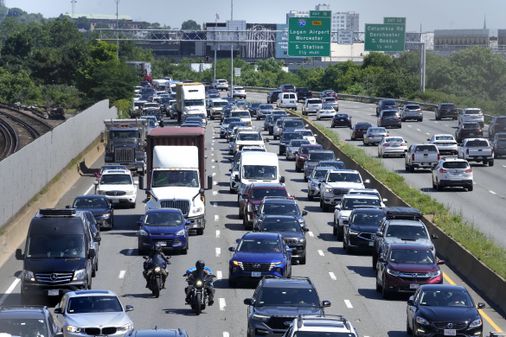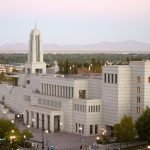“Congestion pricing” still faces an uncertain future in Boston after a City Council committee hearing Monday in which many councilors expressed interest in charging drivers fees during peak traffic times, while others voiced reservations.
“The biggest challenge we have is that our public transit system isn’t up to speed to handle increased volumes” if drivers ditch their cars for the subway or buses, said Councilor Liz Breadon.
While Mayor Michelle Wu’s administration is not actively pursuing “congestion pricing” in Boston, Vineet Gupta, director of policy and planning at the Boston Streets Cabinet, said leaders intend to explore the idea. The goal is to reduce vehicle traffic on certain roads, improve air quality, and raise money for public transit.
“We rank among the worst cities in the country when it comes to traffic,” said Councilor Tania Fernandes Anderson, lead sponsor of the motion to have a committee hearing on the issue. “Our goal for the hearing is to define what congestion pricing can look like with the understanding that congestion pricing is not a one-size-fits-all policy proposal.”
Councilors heard testimony from transportation experts and academics on the successes and challenges cities like London and Singapore have seen with implementing congestion pricing. They also spoke about the robust data collection and research that would be necessary to develop such a policy for Boston that would address the specific traffic problems the city hopes to mitigate, without any unintended consequences.
Strategies they mentioned included additional highway tolls, increased parking fees in specific areas, and new fees for entering specific geographic boundaries on certain days and times of the week that see the most traffic and congestion. They also discussed carve-outs for lower-income drivers or charging different prices for motorcycles, cars, trucks, or higher occupancy vehicles, as well as the need for the city to partner with regional and state authorities to roll out an effective plan.
Adie Tomer, senior fellow at the Brookings Institution, a nonprofit public policy research organization, emphasized any such policy would need to be tailored to address Boston’s traffic, environmental, and public safety priorities.
“While no system is perfect, the trend lines are also clear: Cities and regions with congestion pricing policies experienced less congestion, but they also improve their fiscal stability for their transit operations, and they create opportunities to improve roadway safety and livability in the process,” Tomer said. “It’s not often that one kind of policy can deliver so many benefits, honestly, for so many.”
As councilors questioned the academics and experts, some expressed hesitation over the possibility that congestion pricing could impose a burden on low-income or vulnerable communities by making commuting more expensive, especially when the public transportation system might not be robust enough yet to provide a reasonable alternative.
The “Greater Boston MBTA system as it stands, I think we all agree, is ill equipped to permanently attract commuters out of the cars and onto transit buses,” said Councilor Ed Flynn, who has voiced his opposition to the measure. “Commuters continue to avoid the MBTA because of long delays, unreliable schedules, public safety challenges as well. If congestion tolling forces people off the roads, our already fragile public transit system is unlikely to perform effectively.”
Flynn and Councilor John FitzGerald also expressed concern about making driving into Boston more expensive at a time when the city is trying to attract more people to downtown. Commercial property values postpandemic have plummeted as a result of remote work policies.
New York City had been poised this summer to roll out a comprehensive congestion pricing plan that would have charged a $15 fee for most motorists to enter the core of Manhattan. The plan had faced vehement opposition, and New York Governor Kathy Hochul abruptly halted it last month.
Even if the council ultimately proposes and approves a formal congestion pricing policy, the city would still need approval from state lawmakers to implement it.
Niki Griswold can be reached at niki.griswold@globe.com. Follow her @nikigriswold.











